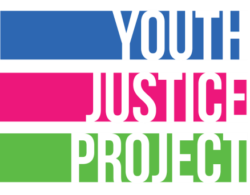What is Supplemental Security Income (SSI)?
SSI provides cash assistance and Medicaid to low-income children and adults with disabilities. In 2015, the monthly payment is $733.
How do I apply for SSI?
Visit your local Social Security Administration (SSA) office or call SSA at 1-800-772-1213 to schedule an appointment to apply.
What should I do if my application for SSI benefits is denied?
You should appeal immediately saying you disagree with the decision. You have 60 days to appeal the denial. After you file an appeal, you will get to have a hearing. You have to wait about a year and a half for your hearing to be scheduled.
What happens to my SSI benefits when I turn 18?
- If you get SSI as a teenager, your SSI case will be reviewed when you turn 18.
- It is important to go to your doctors so SSA has the medical information it needs.
- If the Social Security Administration says you are no longer disabled, you should appeal immediately. You can ask for benefit continuation, which means you will keep getting SSI payments while you look for help with your appeal.
- If you have an IEP in school, you can probably keep getting SSI benefits as long as you have an IEP, and even longer if you join a vocational rehabilitation program.
What should I do if I got a letter from the Social Security Administration saying my benefits will stop because I am no longer disabled?
You should appeal immediately saying you disagree with SSA’s decision. If you appeal within 10 days of getting the notice, you can ask for benefit continuation, which means you will keep getting SSI payments while you look for help with your appeal.
Can I work if I get SSI benefits?
Yes, you can work and keep up to half of the money that you earn while receiving SSI benefits. If you are a student, you can keep even more than half of the money you earn.
What are the requirements to get SSI?
- Disability: you must have a serious physical or mental health disability. If you are under 18, your disability must cause marked and severe functional limitations. If you are 18 or older, your disability must be serious enough that you cannot work full time.
- Income and resources: you cannot be earning more than a certain amount ($1,090 in 2015) to be eligible, but you can work if you are receiving SSI. You cannot have more than $2,000 in resources (resources are money and things you own, other than one home and one car and a few other exceptions).
- Citizenship: you must be a citizen or a qualified non-citizen, including but not limited to refugees and permanent residents.
What should I do if I get an overpayment?
If you get a letter from SSA saying you have been overpaid, you have some options:
- Appeal the overpayment if you think it is wrong and that Social Security did not pay you too much or did not overpay you as much as they said they did. You can also appeal if you do not understand how the overpayment happened.
- Ask for a waiver of the overpayment, which means that you agree that Social Security did pay you too much but you don’t think you should have to pay it back.
- Both! You can appeal and ask for a waiver.
For any option above, you can call SSA or go to your local office and ask for the form you need – a request for reconsideration or request for a waiver of an overpayment.
Keep the letter from SSA in a safe place and talk to a lawyer if you have questions.
If you were denied SSI benefits because SSA decided that you are not disabled, Community Legal Services may be able to help.






